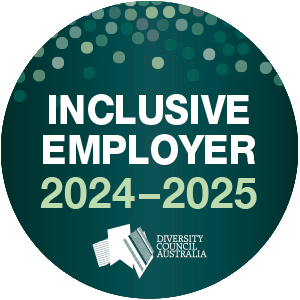26 June 2020
In this article, Greg Wilkinson reflects on what’s changed for him as a dad during COVID-19. Greg, and the fathers he knows, agree there’s been positive movements towards equal parenting, yet his partner helped him question what’s really changed.
‘You’re bloody kidding yourself Greg.’
This was my partner Clare’s response when I told her I was going to write a blog about COVID-19 how it had improved my own parenting.
A few weeks earlier, I was reflecting on fathering during the pandemic: it prompted me to mention in a work meeting that, ‘surely alongside the doom and gloom of COVID-19 there must be some positives that have come out of it?’. I gave the example of the amount of families I‘d seen walking and bike riding together, holding hands and seemingly enjoying each other’s company.
Being a dad with two young kids, we spend lots of times outdoors. Often we’re alone on bike paths with only lycra-clad middle-aged men or power walkers to keep us company. And then it struck me. I looked around the park and, for the first time, saw it wasn’t just a majority of mums and kids at the park, but dads were there too.
Over the past three months, I’ve spoken to lots of mates who are dads and most have, at various stages, commented on how they have enjoyed more time with their kids.
Many men continue to prioritise activities such as golf, fishing, footy above the equal sharing of parenting and household duties but the enforced layoff from these distractions and remote working has meant that spending more time parenting has been unavoidable. Most men I know have loved it.
Yes, I’ve heard lots of comments about how, ‘the kids are driving me mad’ and ‘I didn’t realise parenting was this hard’. But I’ve also heard about how enjoyable just being with each other is and how the slower pace of life has brought families together. Surely, isn’t this something to build on?
The COVID-19 period has also caused me to reflect on my own actions as a partner and parent. Over a glass of wine a few weeks ago, I told my partner, Claire, that I was going to write this blog piece. Her response was, ‘you’re bloody kidding yourself Greg.’
It’s fair to say Claire’s response wounded me.
I thought to myself, ‘I’ve been doing some of the home schooling, and I’ve definitely been doing more stuff with the kids like building paper boats to float down the creek. I even cleaned out the garage, organised the hard rubbish and my housework has hit a new level. Even my boys were saying they loved our family walks each night. What the hell is she talking about?’
What I love about my partner is her bluntness. Claire made it clear I was seeing my parenting efforts through glasses tinted by male privilege. Yes, I was probably doing more, but Claire was doing a lot more. Home schooling, child entertaining, feeding, shopping, coupled with trying to save a business that had gone pear-shaped since lockdown commenced. On reflection there is no equality there and I didn’t see it.
Or maybe I didn’t choose to see it …
We often talk about male privilege at No to Violence and so we should. My learnings as a white privileged male is that, yes, for many men, COVID-19 has improved their connection with kids and family and this is a great outcome that we need to build on.
The COVID-19 social distancing measure has highlighted that as a man, and a father, the way I continue to think and act is still shaped by white privilege and patriarchy. I need to do more in both my personal and work life to address this.
The United Nations report[1] that the pandemic is heightening inequality for women around the world. Women are more likely to work in health careers and are more exposed to the virus. Many more are suffering economically through unstable employment. While, ‘unpaid care work has increased, with children out-of-school, heightened care needs of older persons and overwhelmed health services.’ The World Economic Forum report[2] that on average women do one third more unpaid care work than men.
If you would like to share your experience of being a father during COVID-19, please email communications@ntv.org.au
[1] https://www.un.org/sexualviolenceinconflict/wp-content/uploads/2020/06/report/policy-brief-the-impact-of-covid-19-on-women/policy-brief-the-impact-of-covid-19-on-women-en-1.pdf
[2] https://www.weforum.org/agenda/2020/03/the-coronavirus-fallout-may-be-worse-for-women-than-men-heres-why/








